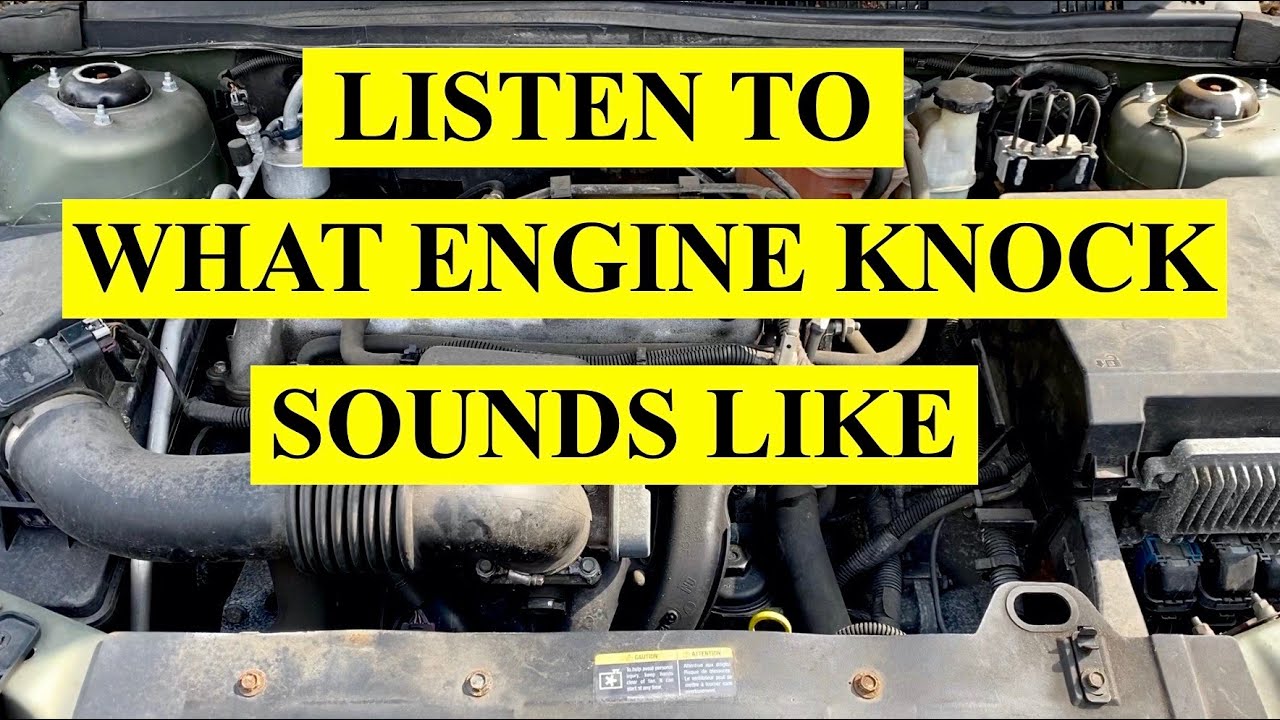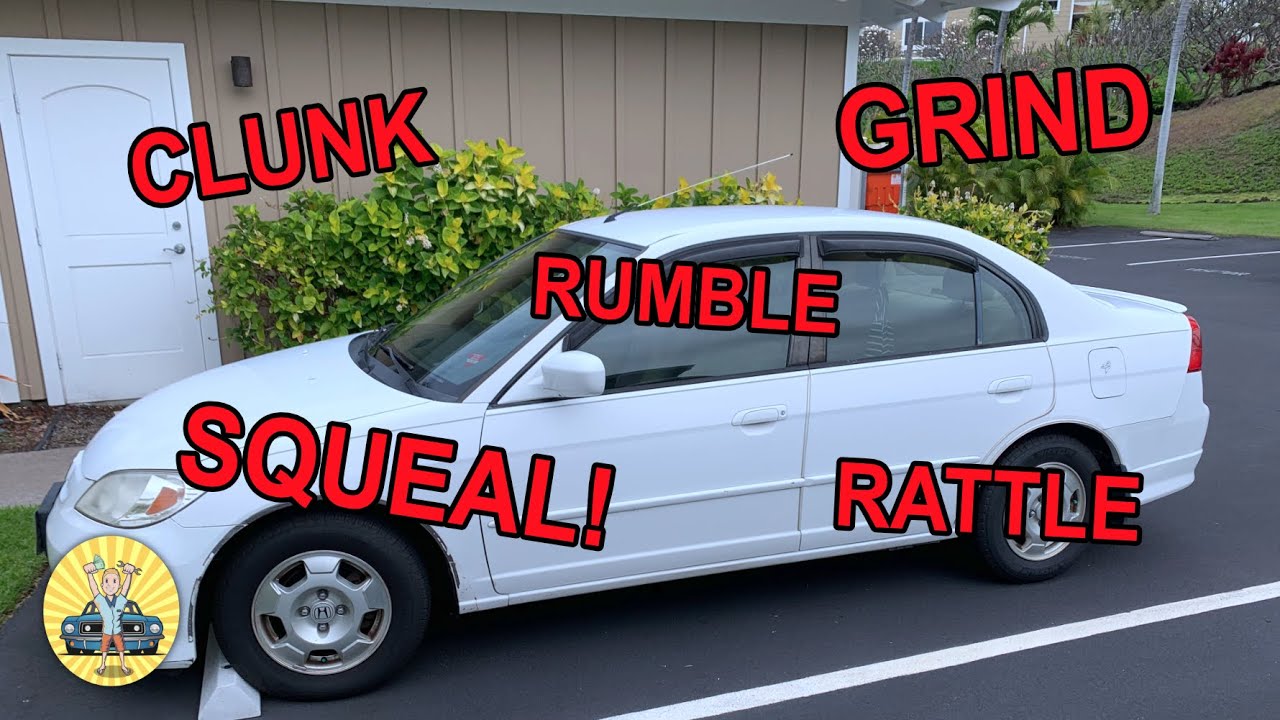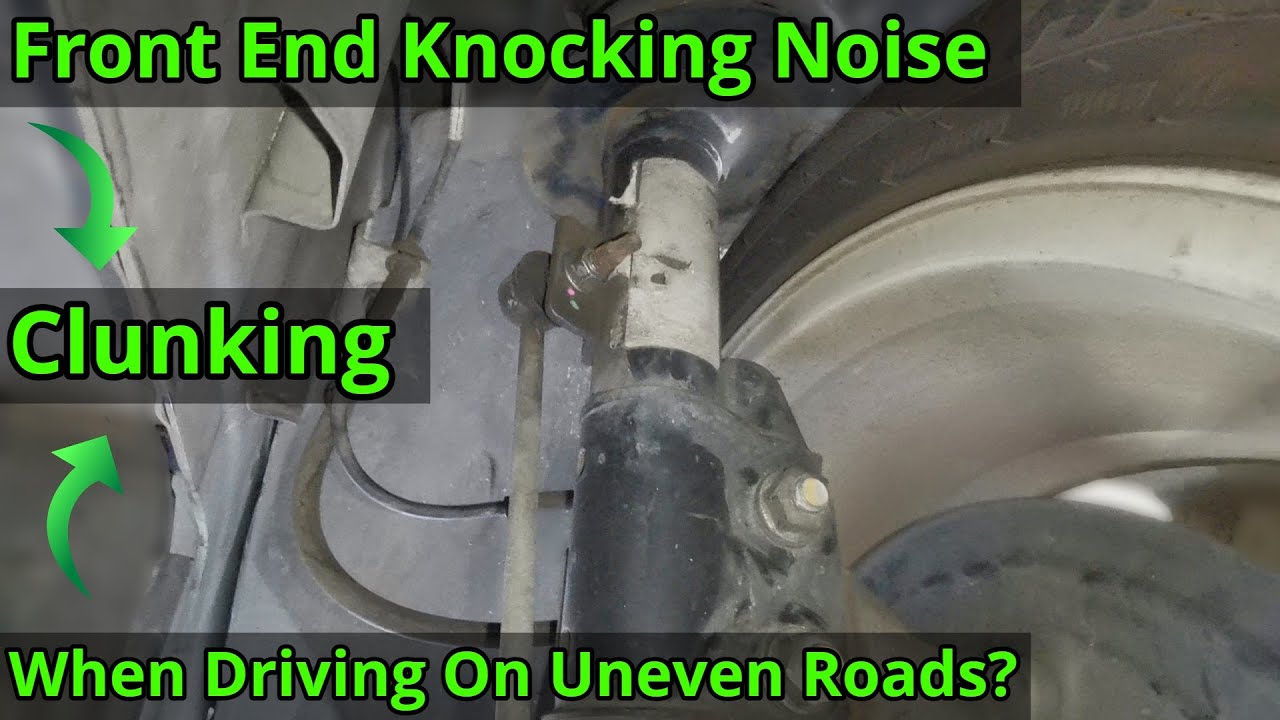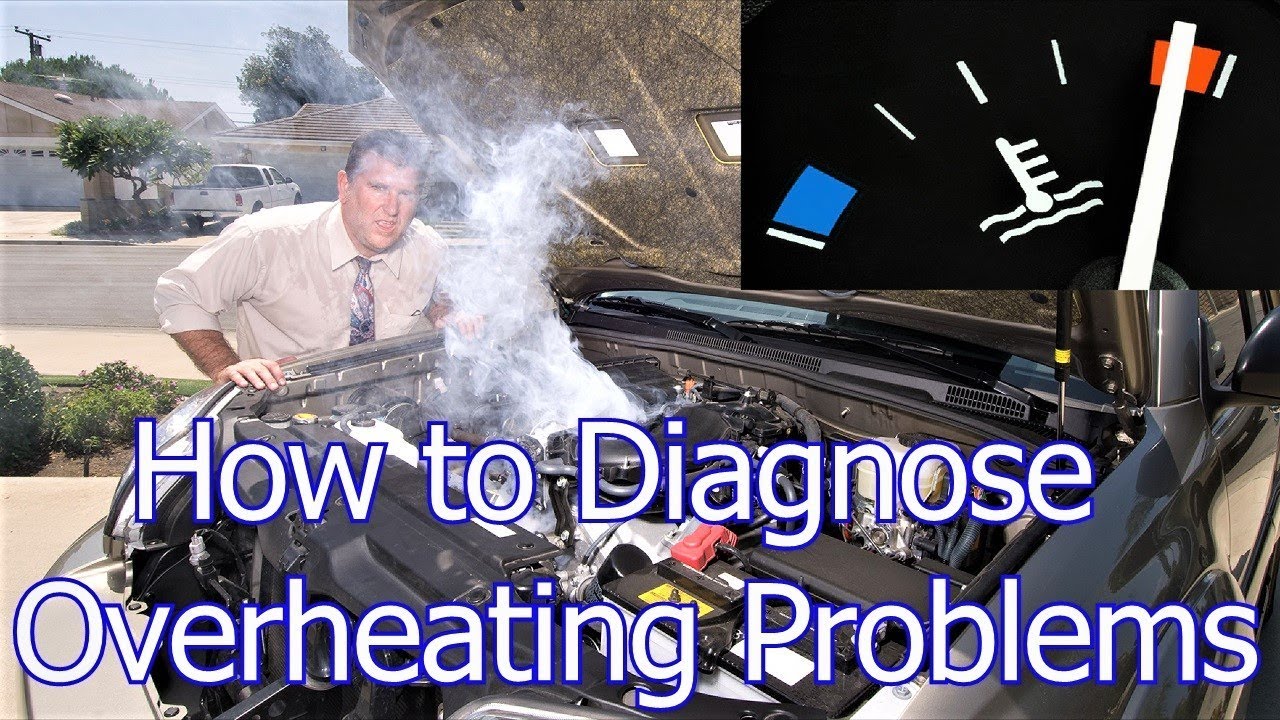Are you hearing a knocking sound? It’s your car’s engine telling you that something is wrong under the hood. If your engine no longer makes the smooth rumble you’re used to but instead makes a tapping or pinging sound that gets louder and faster as you speed up, that’s a classic sign of engine knock.
But “engine knock” can be used to describe many different sounds that can be caused by many different things. It can be hard to figure out what’s making the engine knock sound. Here are the most common reasons why an engine knocks to get you started.
Carbon buildup in the combustion chambers or on the walls of the cylinders, lifters or connecting rods, out-of-sync combustion timing, an overheated engine, back pressure from the exhaust, vacuum leaks, poor fuel octane or quality, spark plugs that don’t work, or knock sensors that don’t work are common causes.
Engine knocking Explained
Engines have a lot of moving parts that make the noise we usually hear when we listen to an auto engine. If you start to hear strange sounds, you should sit up and pay attention. The soft tap that gets louder or quieter as you step on the gas pedal could be caused by stuck valves or tappets.
If you notice a drop in power and hear harder knocking sounds, it’s likely that the timing of the ignition is off. When you start the car, a rattling sound followed by a harder knocking sound helps you figure out what is throwing off the timing of the ignition. A noise that sounds like it’s coming from under the engine will take longer to fix.
Most drivers don’t know the difference between knocking from the crankshaft, detonation, or piston rings. A good customer service center should be able to help.
When engines knock or ping, it means there are other problems. When the knocking gets louder and ends with a bang or a metallic grinding or screeching sound, it means that the engine needs expensive repairs. When the engine knocks and the check engine light comes on, you likely need to fix something or take your car to a repair shop.
How does the knocking occur?
A simple explanation of how an engine works can help you figure out what might be going on under the hood. A four-stroke car engine is made up of a lot of different parts that work together in a complicated dance. Each piston goes through four strokes. When you turn the key or push the starter, the battery’s stored energy powers the starter, which turns the crankshaft. The zigzag-shaped crankshaft is at the bottom of the engine, where it can be lubricated by the oil pan.
When the crankshaft turns, oil gets to the main bearings, connecting rods,, pistons, end bushings, cylinder, and rings. The rotation controls intake, compression, combustion, and exhaust. There is one combustion for every four movements, which is called a 1:4 power stroke ratio. The crankshaft not only controls how the pistons move, but it also turns the intake and exhaust camshafts.
The camshaft ensures the intake and exhaust valves are open or closed at the right times. It either directly moves the valve stem or uses valve lifters connected to push rods that can be adjusted and a rocker arm. Every valve stem goes through a coil spring. When the cam or rocker arm isn’t pushing the valve open, the spring closes or re-seats the valve. On each valve shaft, there is an oil seal that keeps oil from getting into the combustion chamber. Oil from the oil pan reservoir is used to grease all the parts that move.
Some engines have one set of intake and exhaust valves per cylinder, while others have two sets. The more parts that move and the higher the RPMs, the more likely it is that the engine will make knocking noises and get damaged. When the crankshaft is turning due to the pistons firing, the starter shuts off, and the alternator recharges the battery in preparation for the next time it will be required.
What are the causes of engine knocking
Only a mechanic will be happy to hear an engine knock. Most of us won’t be able to tell if the noise is coming from a rod knock, a valve lifter tap, a rocker arm, or a spark knock. But car owners can take some steps to fix engine noise before it causes big problems.
1. Wrong or broken spark plugs
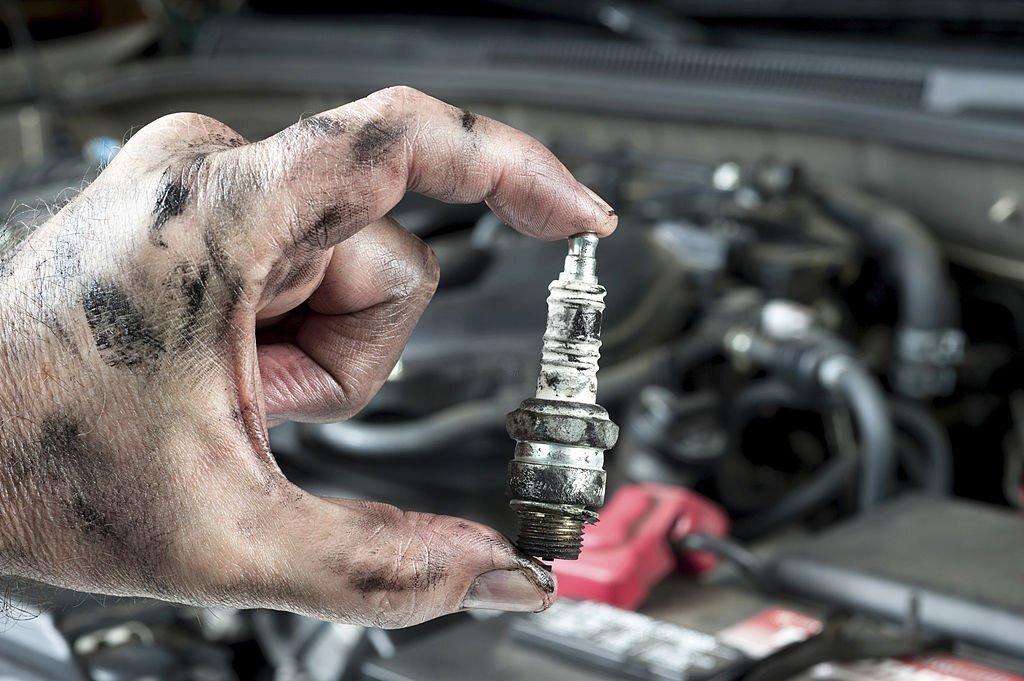
Spark plugs create the “spark” in the combustion chamber, which ignites the mixture of fuel and air for the engine’s power stroke. Knocking can be caused by bad or wrong plugs or the wrong spacing or gap between them.
Different spark plugs can handle different amounts of heat, leading to detonation knock or early detonation. If the gap is too small, the spark isn’t strong enough to light the mixture. If the gap is too big, the spark might not happen at all.
Modern cars use a computer to send a pulse of electricity to the spark plug to ignite the mixture of fuel and air. In older cars, the distributor cap is used to turn it on. If the spark plugs are broken or the wrong kind, the timing of the ignition in the combustion chamber can be off, which can also cause knocking.
Solution: Check the spark plugs or get new ones.
Spark plugs are for different temperatures, and the space between the electrodes must be just right. Due to its ability to handle the heat, the wrong spark plug can cause detonation too soon, called “spark knock.” If the spark plug gap is too small or too big, the engine won’t start. Carbon can coat the electrodes and make the gap between them smaller. Check and clean the spark plugs, ensure the vehicle uses recommended plugs and that the gap is set correctly.
2. Worn Bearings
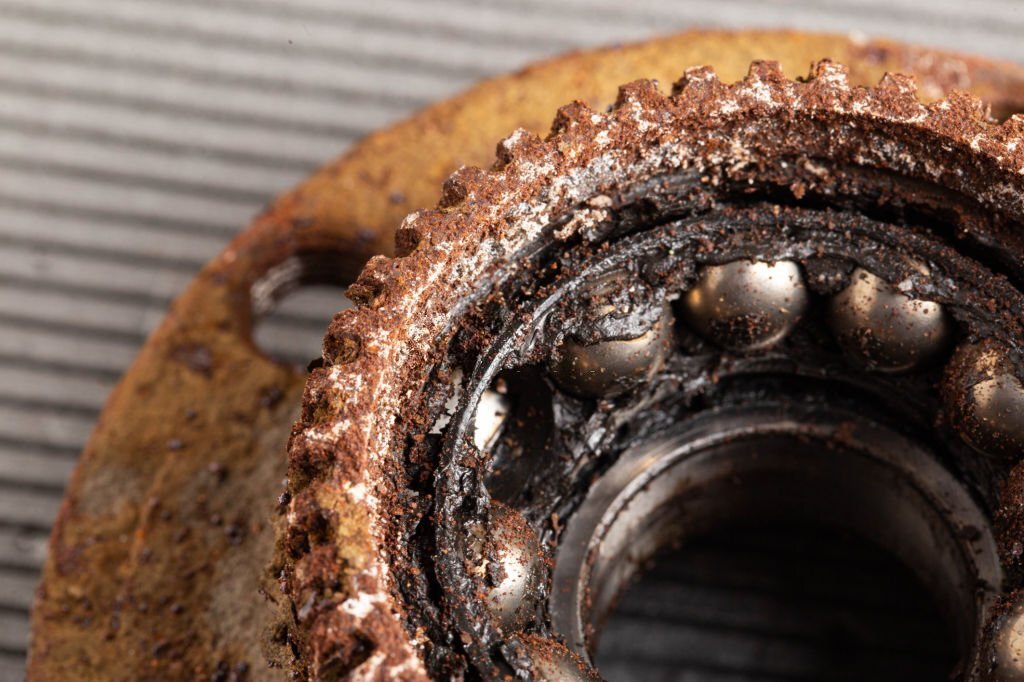
When a car runs at 1500 RPM for an hour, the wheels turn about 90,000 times. So, if you commute an hour each way to and from work five days a week, that’s 900,000 rotations. If you touch the pedal to pass, that number jumps to 3000 to 5000RPM or more, and that number for the week gets bigger. An engine can easily turn 50 million times in a year, which can cause the bearings to wear out.
The main bearings between the crankshaft and the engine block and the connecting rod bearings between the connecting rod and the crankshaft turn millions of times. Bearings wear out over time, which can make a rattling or knocking noise deep in the engine. If you don’t watch it, it can hurt the connecting rods.
3. Low-Quality Fuel (Low Octane)
Using gas with a lower octane value than what is recommended for the car can cause the mixture of fuel and air to explode before it should, which is called “detonation knock.” The result is a “pinging” or “knocking” sound from the engine. According to their octane rating, different gasoline kinds are given numbers and names.
The more refined the fuel is and the higher the percentage of octane, the higher the octane rating. It goes off in a more controlled way, so it is less likely to go off too soon. Manufacturers give octane levels names and numbers. Regular, or bronze, has an octane level of 87%, Extra, or silver, has an octane level of 89%, and Supreme, Premium, or gold has an octane level of 91% to 93%. Octane 85 is often available in places with higher elevations.
Solution: Use fuel with high octane
The type of fuel can hurt how long an engine lasts and how well it runs. Even though low octane fuel may be cheaper, it may not be as good for the engine and may not work as well. Damage to the engine could also cost more to fix. If your engine knocks, make sure you are using the fuel type recommended by the car’s maker. You could also add an octane booster to raise the octane rating and, hopefully, stop the knocking.
4. Bad Knock Sensor
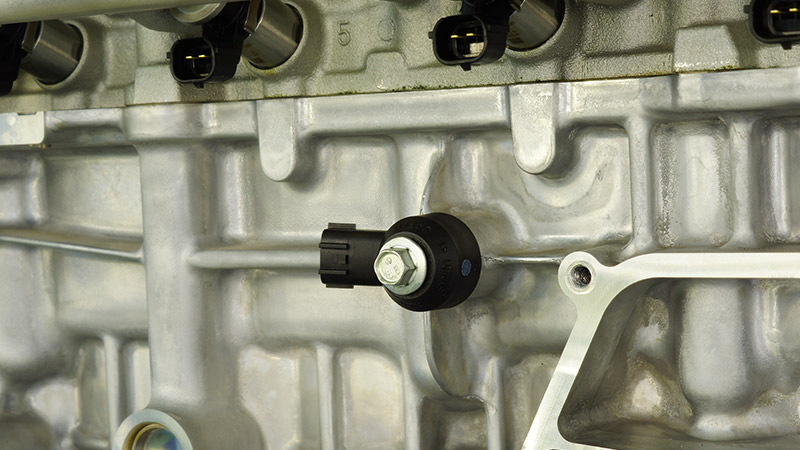
Microcomputers and sensors are used in modern cars to keep the engine running smoothly. The Engine Control Unit (ECU) is in control of the fuel injectors, the mixture of fuel and air, and the timing. If there is any knocking, the knock sensor tells the ECU about it, and the problem is fixed automatically. But if the knock sensor isn’t working right, you might hear knocking.
Solution: Replace the Knock Sensor
If you hear your engine knocking, it could be because the knock sensor is broken. The sensor isn’t in a place where it’s easy to get to, and most people don’t have the tools to check to see if it’s working. Take your car to a reliable repair shop and ask them to check it out and replace it if they think it needs to.
5. Lean Air/Fuel Mixture
When a spark lights the compressed air and fuel mixture, this is called combustion. When there is too much oxygen, the mixture of fuel and air is said to be “lean.” That means there isn’t sufficiently fuel in the mixture to burn quickly, so there are multiple explosions and a knocking sound. If you don’t check on it, the pistons and walls of the cylinders will be damaged.
Most of the time, the problem comes from parts of the engine that regulate or control the flow of both air and fuel. Check that the oxygen and mass airflow sensors are working well, and make sure that the fuel injectors and pump are also in good shape.
Solution: Enrich or Lean the Mixture
There is more fuel in a richer mixture, while there is less fuel in a leaner mixture. The perfect mixture will burn all of the fuel in the chamber and leave no oxygen behind. A rich mix will make knocking less likely by lowering the temperature of compression and reducing the number of early detonations.
When you go up in elevation, the air gets thinner. Because the air is less dense, it takes more air to burn the same amount of fuel in the air-fuel mixture. A mixture with less fuel means it will burn more completely in the combustion chamber, and there will be less chance of the detonation knocking.
6. Problems with the Engine Timing Belt or Chain
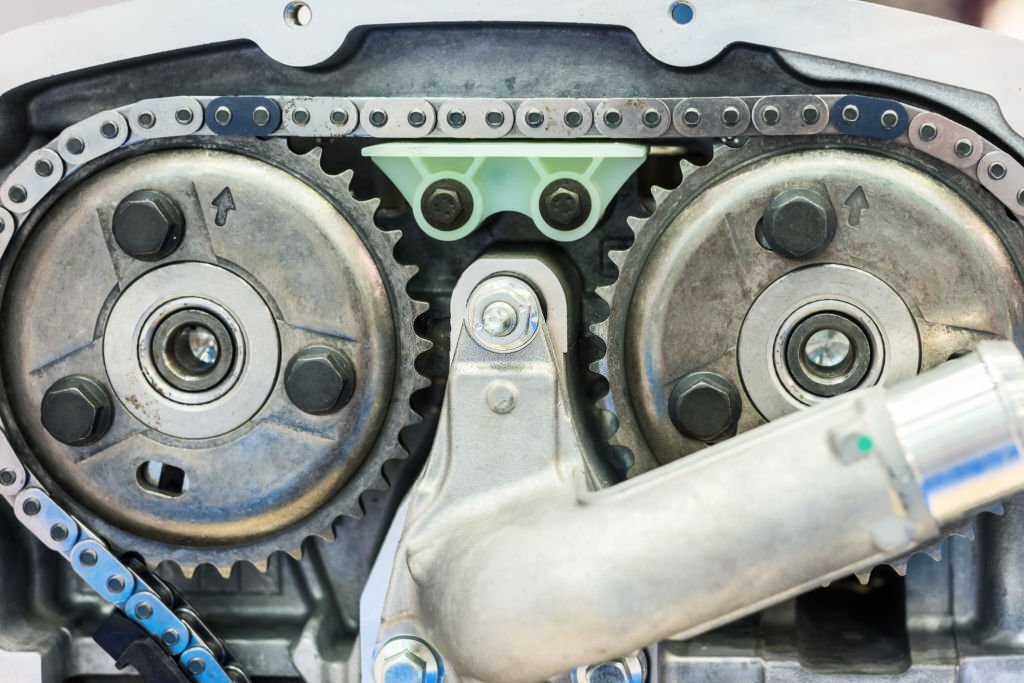
The timing chain or belt connects the crankshaft to the camshaft. It makes sure that the pistons move at the same time that the intake and exhaust valves open and close. If the timing is off, the spark might not happen when it should, which could cause multiple explosions that make the engine knock.
Older cars have a distributor cap, which is also connected to the timing to make sure that the electrical impulse goes to the spark plug at the right time to light the air-fuel mixture.
Instead, modern engines use computer controls to decide when the spark will happen during the piston compression cycle of the air-fuel mixture. If the timing of the combustion is off, it could be because of a problem with the car’s computer instead of a problem with the car’s mechanics, as was the case with older cars.
7. The cylinder head isn’t lubricated enough
If the cylinder head isn’t lubricated well enough, it may make a knocking sound. This usually happens because there isn’t enough oil in the reservoir pan because the oil is old or there is a leak. It can happen if you use generic oils with a low flashpoint, which means they will evaporate on the hot walls of the upper cylinder.
Solution:
Many manufacturers say that synthetic oil is the best way to keep the cylinder head from getting too dry. Lack of lubrication can also damage the piston rings and give the cylinder walls a finish that looks like shellac. This can lead to less compression, less power, and less efficiency.
8. Oil Pressure Is Low
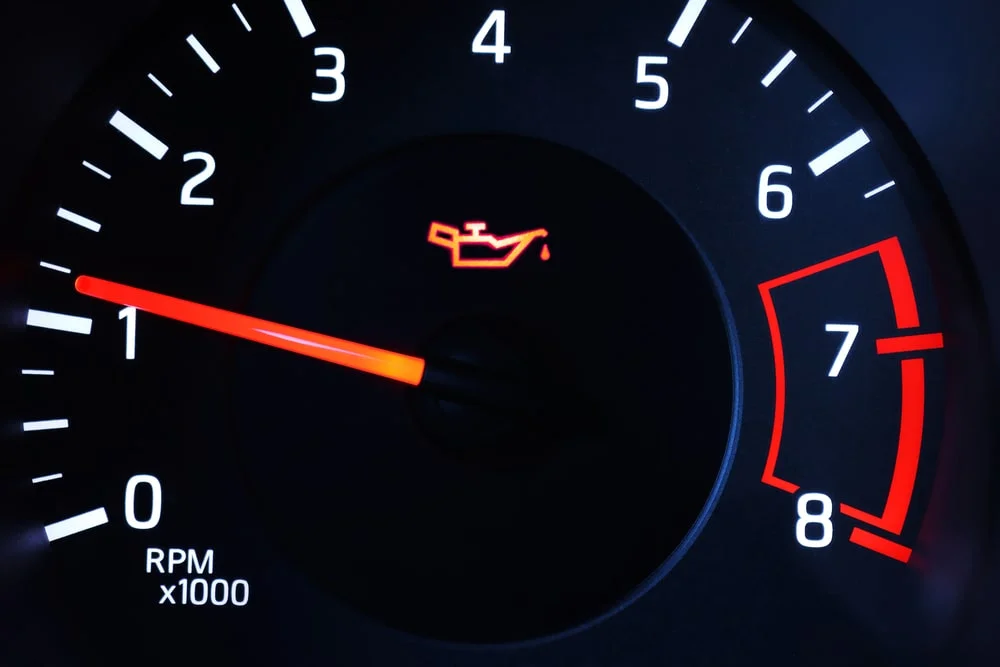
Engine knock can also be caused by low oil pressure. The oil keeps moving parts like the camshaft, cam lobes, lifters, valve stems, and rocker arms smooth and cools them down. The space between the parts, called the lash, is filled with oil to lubricate and fill the space. When the gaps between the parts get too big because of wear or low oil pressure, the parts clatter or knock.
The knocking sound might be louder when the engine is cold and the oil hasn’t yet reached all of the gaps. Modern engines that use hydraulic lifters to cut down on lash and knocking can also be hurt by low oil pressure. Low-quality or low-grade oils can thin out when the engine is hot, which can stop the oil pressure from building up the way it should.
If you use the engine oil that the manufacturer says to use, the oil pressure should be right, unless there is a leak in the oil system.
Solution:
Check each spark plug for white ash, and if there’s an oil leak, look for oil on the ground underneath the engine or around the seals. Also, the bluish-black exhaust means that oil is probably being burned in the combustion chambers.
9. Valve Lifter Failure
When the engine is cold or hot, faulty valve lifters make a fast tapping sound. The valve lifters (also called hydraulic tappets or hydraulic rod adjusters) make sure that all of the engine’s valves have no space between them. They are at the end of each rocker or push arm, on the other side of the valve stem from which they help.
A stuck lifter can make a clicking, ticking, or tapping sound that can be heard over the noise of the engine. How bad the problem is can often be told by how long it lasts and how it sounds. When a car starts, it often taps for a moment because the oil is dirty. If the lifter valve doesn’t stop making noise, it will hurt the engine.
10. Carbon Deposits
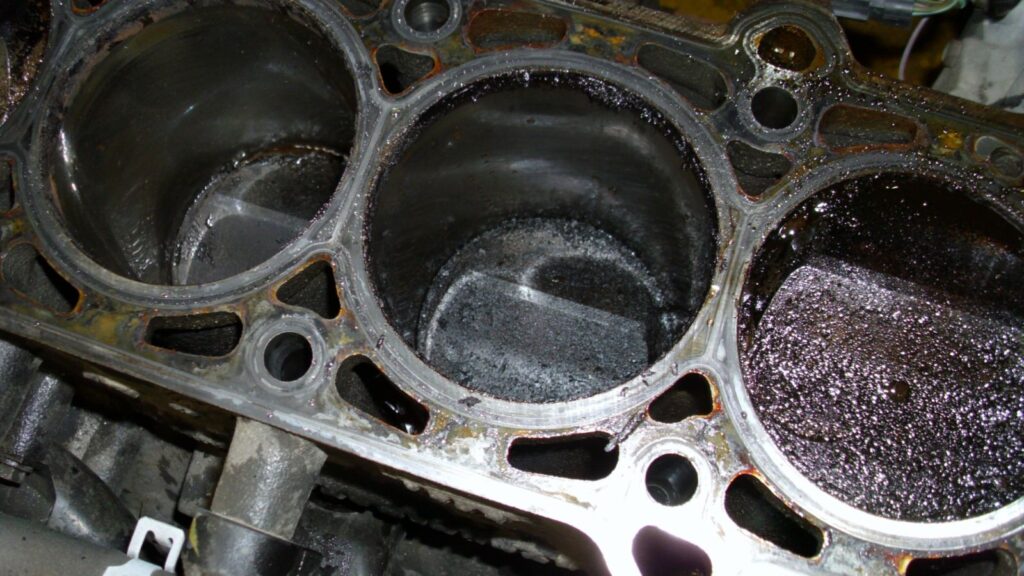
Even with additives or detergents that clean carbon, carbon can still build up in carbon-based fuels like gasoline and diesel. Carbon can build up on the spark plugs, valves, pistons, combustion chamber, and cylinder walls. The buildup makes the chamber smaller, increases the amount of compression, and makes the firing and power stroke less effective.
Carbon deposits can also make hot spots that can light the mixture of air and fuel before the spark plug does. The double firings are barely out of sync in the chamber, which causes a shockwave as the piston gets to the top of its stroke. The result is a sound like a can of marbles knocking, pinging, or rattling. The results are the same whether the hotspot detonation happens before or after the spark plug lights the mixture.
Modern cars have a knock sensor that can tell when the engine is knocking and send that information to the Engine Control Unit (ECU). The ECU will change the timing to make up for the extra firing that will happen because of the carbon. The adjustment keeps the engine from getting hurt in a big way. Unfortunately, both performance and efficiency go down.
Solution: Add Fuel Detergent
Most fuels for cars have a small amount of detergent in them to keep carbon from building up on the cylinder walls and spark plug electrodes. Carbon buildup can lead to hot spots, fuel-air detonation before it’s ready, and a knocking sound. Adding more fuel detergent might help get rid of carbon and stop the engine from knocking.
11. High Compression Ratio
A high compression ratio can lead to higher temperatures in the combustion chamber, which can cause the mixture of fuel and air to explode before the spark plug can light it. The explosion that happens next is out of time and makes a knocking sound.
12. Overheated engine
Most of the time, an engine that gets too hot is caused by a problem with the cooling system, like a coolant leak or a broken water pump. Pre-ignition can happen when the air and fuel mix explodes too soon because the engine is too hot. This makes a knocking sound.
12. Low Engine Speed
When an engine knocks at low speeds of 20 to 30 mph, it is often due to spark knocking, which is caused by low-octane fuel or old fuel.
More Solutions:
Change Oil and Filter
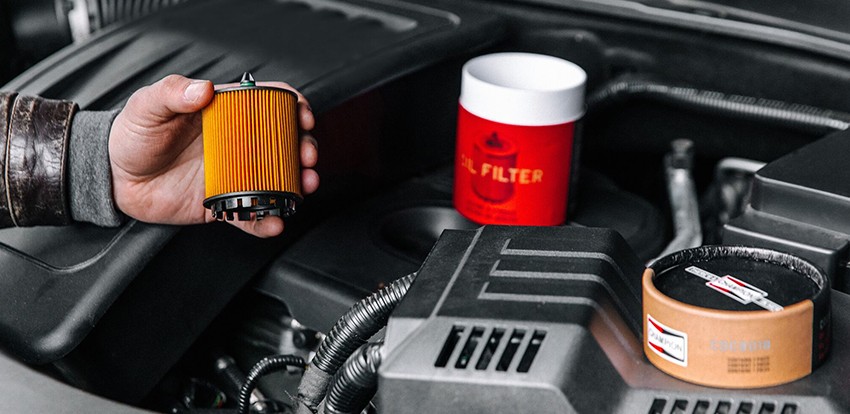
The first thing to do is to change the oil. The oil keeps all the engine’s moving parts from getting too hot and helps get rid of metal shavings and other junk. Most of the particles are caught by the oil filter, but sludge can build up and get back into engine parts.
Old, dirty oil can make parts stick together, and the wrong grade of oil can thin in a hot engine, leaving a sticky sheen on the cylinder walls and hurting other parts. Every 5,000 to 8,000 miles, you should change the oil and filter with what the manufacturer recommends. The old rule of thumb was every 3,000 miles or every three to six months. Some people say it should be done every 10,000 miles, but that might be pushing it.
Speed up the engine
Short and slow City driving doesn’t allow the engine to heat up, which can lead to carbon buildup. Low-speed knock can be caused by fuel with a low octane rating or fuel that has been sitting in the drive for a long time. Make sure you’re using the right kind of gas and drive for an hour or so on the highway to clean out the pipe
Lower the amount and temperature of the incoming Air
Cool air is denser, so when it gets hot, it will expand to a larger volume and add more oxygen to the mixture of fuel and air. A lower air intake temperature lets the engine take in a more dense charge of air, which improves combustion and shortens the time it takes to burn. Make sure there is nothing blocking the air intake and that it is away from hot parts of the engine like the exhaust manifold
Clean up the Combustion Chamber.
When carbon deposits build up in the combustion chamber, the volume will go down and the pressure will go up. The buildup gets in the way of the combustion process, slows down the firing, and makes the power stroke shorter. There are different ways and products you can use to clean the combustion chamber
FAQ
Can I ignore the knocking Sound?
If you ignore the knocking, it won’t go away, and it could cause the engine to blow. In this article, we talk about what makes an engine knock and how to fix it. When you’re done reading, you’ll know more about what causes engine knock, how to fix it, and whether it’s safe to drive with engine knock
Can a car be driven if the engine is knocking?
When you hear your engine knocking for the first time, you should do something. The longer you wait, the more likely it is that pistons, connecting rods, bearings, bushings, rings, and other parts will get damaged. The worst thing that can happen is a hole in the engine block, which means the engine has to be replaced.
Valve and tappet knocking may only have a short-term effect on how well and how fast your ride goes. Adding an extra quart of oil once in a while could put off repairs for days or even years. But if your engine is making noise, it’s best to fix it before you have to walk.
Final Thoughts
There are many things that can cause an engine to knock, and all of them can hurt it. The noise might go away if you change the oil and spark plugs, use a higher octane fuel, or clean the engine. But if the sound keeps happening, you should go see your mechanic.

